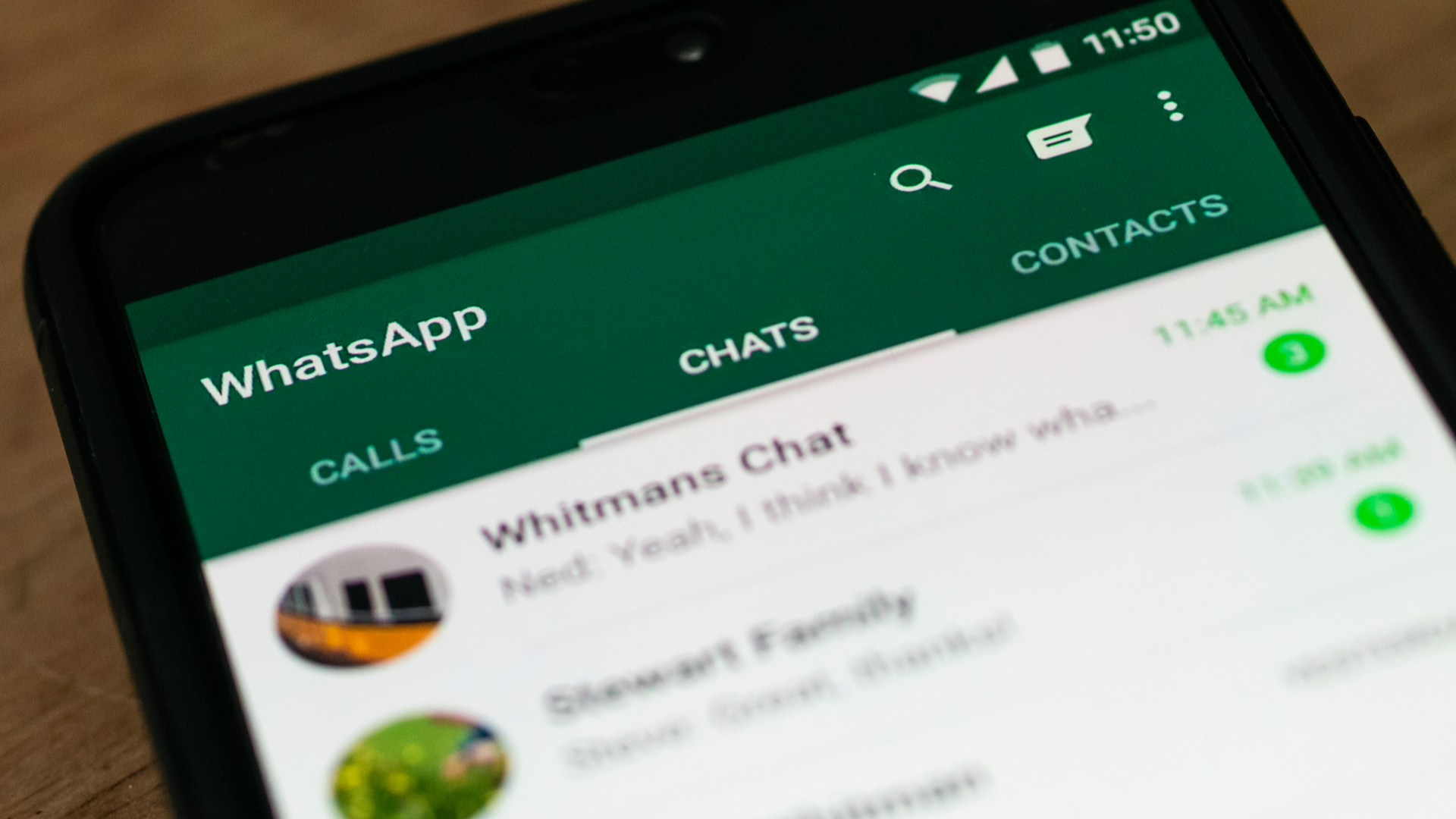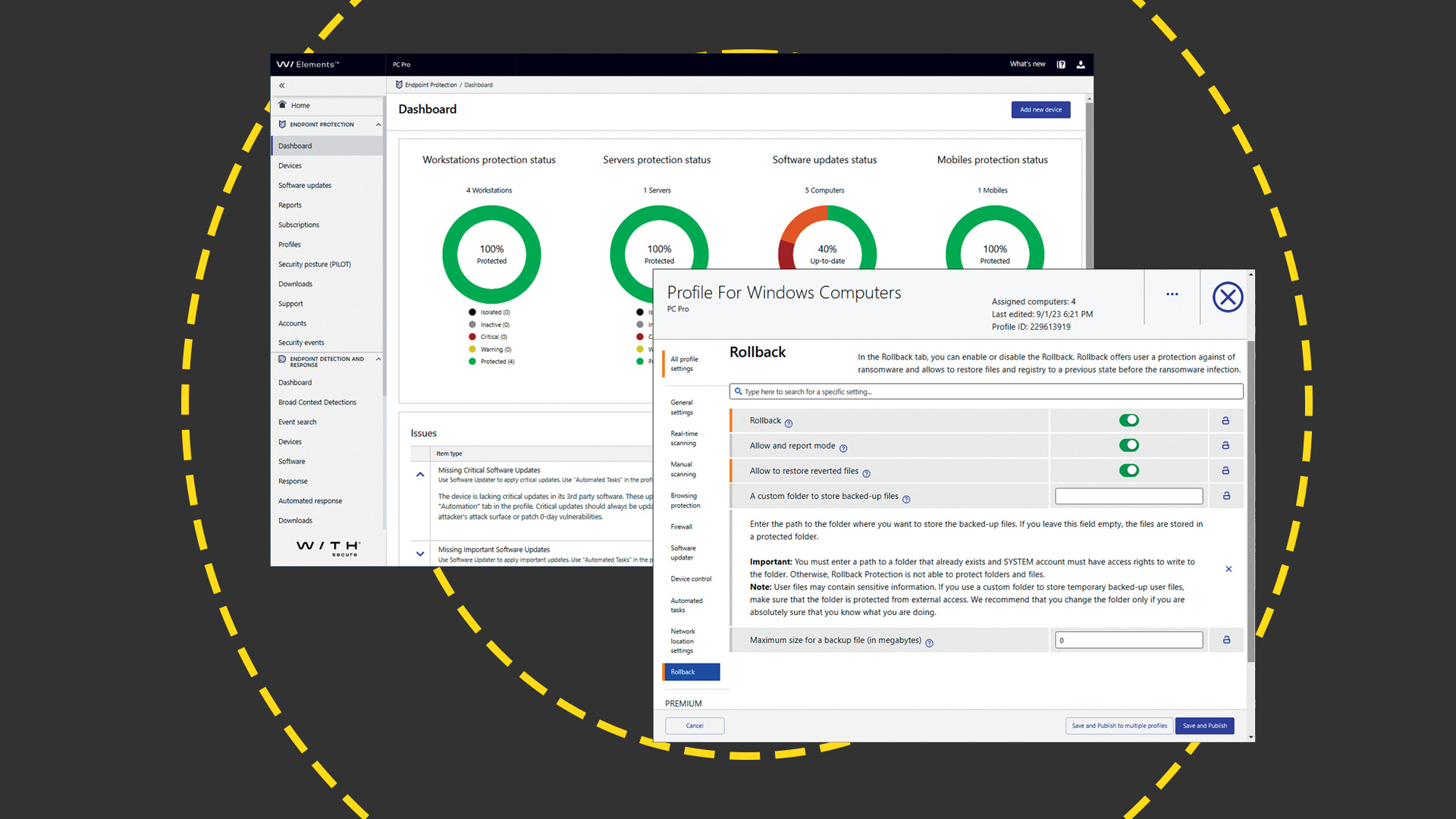WhatsApp flaw leaves users open to 'shoulder surfing' attacks
Hackers can gain full access to individual’s WhatsApp accounts using just their phone number


WhatsApp users are susceptible to shoulder surfing attacks due to the way the service restores accounts to new devices, with hackers able to compromise individuals using just their phone number.
Messages sent through WhatsApp are protected through end-to-end encryption, meaning its incredibly challenging for hackers to intercept and spy on communications data.
However, a security expert has demonstrated how criminals may be able to compromise users by downloading their accounts to third-party devices.
Users logging into WhatsApp on a new device must first acquire a unique code that’s sent to them via text message. This code, once entered into the app, will validate the phone and restore account settings and history from a backup.
Should hackers manage to obtain a victim’s phone number, they can download WhatsApp on a clean device and enter this to request an account restoration code be sent via text message. Should they be within spying distance of the victim’s smartphone, they can obtain that code as and when it’s sent, according to ESET security specialist Jake Moore.
From there, by simply entering the unique code into their clean device, they can fully compromise the victim’s WhatsApp account.
Moore said he devised the theory and decided to test it on a colleague, who often finds themselves at the end of his social engineering experiments.
Get the ITPro daily newsletter
Sign up today and you will receive a free copy of our Future Focus 2025 report - the leading guidance on AI, cybersecurity and other IT challenges as per 700+ senior executives
“Recently, I threw into our conversation that it’s always a good idea to back up your WhatsApp chats, just in case she didn’t, as I wouldn’t want her to lose them forever,” Moore said. “A few days later, I used my spare phone and downloaded the app. It requested my phone number to verify the device it was to be installed on.”
“It wasn’t long before my colleague left her desk to make a coffee, leaving her phone in view on her desk, so I entered her phone number into my new WhatsApp account.
RELATED RESOURCE

Remote office networks pose a business and reliability risk
A survey of IT professionals shows that nearly every company suffers direct business impact from network service interruptions
“Her phone instantly received a message (on silent) and I walked past her desk mentally noting the code. I typed it in the verification field on my spare phone. Et voilà - I had control of her account.”
While employees and IT teams may take all the precautions in the world to guard against network-based cyber attacks, they may find themselves vulnerable to in-person shoulder surfing attacks.
It’s a huge risk when in the office or even out and about. Moore, for instance, highlighted how likely we are to leave our phones by our desks while in the office, or on the table in a restaurant when dining with others.
Moore has recommended WhatsApp users guard against the attack by turning off previews for SMS messages, and, more importantly, never leave their devices unattended.
Moreover, WhatsApp created its own two-factor authentication process, which can be turned on by heading into the settings menu. Once enabled, the app will ask users for a custom PIN number at random times when they open the app.

Keumars Afifi-Sabet is a writer and editor that specialises in public sector, cyber security, and cloud computing. He first joined ITPro as a staff writer in April 2018 and eventually became its Features Editor. Although a regular contributor to other tech sites in the past, these days you will find Keumars on LiveScience, where he runs its Technology section.
-
 Asus ZenScreen Fold OLED MQ17QH review
Asus ZenScreen Fold OLED MQ17QH reviewReviews A stunning foldable 17.3in OLED display – but it's too expensive to be anything more than a thrilling tech demo
By Sasha Muller
-
 How the UK MoJ achieved secure networks for prisons and offices with Palo Alto Networks
How the UK MoJ achieved secure networks for prisons and offices with Palo Alto NetworksCase study Adopting zero trust is a necessity when your own users are trying to launch cyber attacks
By Rory Bathgate
-
 Busting nine myths about file-based threats
Busting nine myths about file-based threatsWhitepaper Distinguish the difference between fact and fiction when it comes to preventing file-based threats
By ITPro
-
 The Total Economic Impact™ of the Intel vPro® Platform as an endpoint standard
The Total Economic Impact™ of the Intel vPro® Platform as an endpoint standardWhitepaper Cost savings and business benefits enabled by the Intel vPro® Platform as an endpotnt standard
By ITPro
-
 The Total Economic Impact™ of IBM Security MaaS360 with Watson
The Total Economic Impact™ of IBM Security MaaS360 with WatsonWhitepaper Cost savings and business benefits enabled by MaaS360
By ITPro
-
 WithSecure Elements EPP and EDR review: Endpoint protection on a plate
WithSecure Elements EPP and EDR review: Endpoint protection on a plateReviews An affordable cloud-managed solution with smart automated remediation services
By Dave Mitchell
-
 KuppingerCole leadership compass report - Unified endpoint management (UEM) 2023
KuppingerCole leadership compass report - Unified endpoint management (UEM) 2023Whitepaper Get an updated overview of vendors and their product offerings in the UEM market.
By ITPro
-
 The Total Economic Impact™ of IBM Security MaaS360 with Watson
The Total Economic Impact™ of IBM Security MaaS360 with WatsonWhitepaper Get a framework to evaluate the potential financial impact of the MaaS360 on your organization
By ITPro
-
 Unified endpoint management software vendor assessment
Unified endpoint management software vendor assessmentWhitepaper Make positive steps on your intelligent automation journey
By ITPro
-
 PowerEdge - Cyber resilient infrastructure for a Zero Trust world
PowerEdge - Cyber resilient infrastructure for a Zero Trust worldWhitepaper Combat threats with an in-depth security stance focused on data security
By ITPro